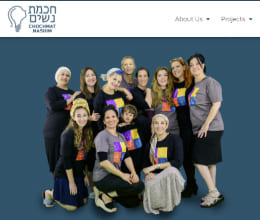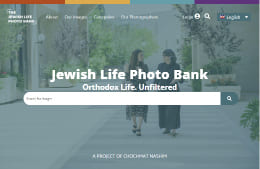It is perhaps one of the most brilliant — and diabolical — tactics, to take a part of someone’s tradition, discard the rest, and use it against them, out of context and chopped in pieces.
It is effective because things torn from their source are easily misused, appropriated, and twisted to mean something different — even their exact opposite. They become partial truths, which are far more dangerous than lies, as lies are easily debunked while partial truths hold enough validity to fool the masses.
This is what I see happening to Jewish concepts and traditions. People take something Jewish, remove it from its source, and use it to weaken Israel and the Jews, hijacking it for their own cause.
“The message of Passover is about marginalised groups overcoming oppression,” says Tania Shew in the incredibly patronising video with Jeremy Corbyn, who uses the holiday message to advocate for refugees and characterise the rampant antisemitism in his party as “a few mostly anonymous” people.
Yet, the Passover story isn’t about marginalised groups overcoming oppression, it is the origin story of the Jewish People. It is the story of how we went from being a family of slaves to a nation under God.
The haggadah text of the Seder was begun by our sages in Temple times, and added to over the centuries in parts, and via Jews in different parts of the world at different stages of Jewish life. It is a call to national memory, a command to teach our children where we came from and where we want to be.
As with all festive meals, it begins with the blessing over wine — which includes thanks to God for choosing us and recalls our leaving Egypt. It continues with an invitation to all who are hungry to come and eat, to join us for the story of our people.
And that story begins back with Abraham, the first to recognise God and forswear idols. It continues to his son Isaac and grandson Jacob, who goes to Egypt as a result of famine. Thus begins our sojourn in Egypt, subsequent slavery and redemption by the “strong hand and outstretched arm” of God.
Throughout the haggadah, at the beginning and end, are explicit references to Jerusalem — and to the Jewish people being free in rebuilt Jerusalem.
The story of Passover cannot be disconnected from Jewish independence. It is the story of the Children of Israel receiving the Torah of Israel and being brought to the Land of Israel.
Shew refers to the Torah once, saying that we are commanded not to “oppress the stranger, for you were strangers in Egypt.” She is right. We received the Torah weeks after leaving Egypt, in the Sinai desert on the way to the Promised Land. It is an integral part of our story, yet Shew and Corbyn conveniently use only that which fits their agenda and disregard everything else. Corbyn says, “The greatest Jewish tradition [is] of helping people in need.”
Yet, we have a lot of traditions, and the Torah has a lot of rules. Many are about what to do in our land, others are about ritual, and others about the Sabbath and holidays. These go unmentioned.
In the US, too, Jewish tradition is hacked apart to fit the social justice of the day. IfNotNow, a group of hard-left Jews have become token Jews with token Judaism for those who want to see Israel fall. Their name comes from the sage Hillel, the full quote is, “If I am not for myself, who will be for me? And if I am for myself, who am I? And if not now, when?” It is about responsibility, to oneself and others.
The problem with both of these examples — and myriad others —is that the Jew is forgotten even as his tradition is appropriated. Corbyn makes Passover about helping the other, as IfNotNow does to Judaism. But the entire Passover story, our origin story, is based on the idea that without personal safety and security, without a home of one’s own, one cannot care for the other. When one has no security s/he is the other.
That is why the law not to oppress the stranger was given to us as conduct for when we were secure in our homeland and strangers were among us. That is why Hillel begins with “myself”. Tearing apart our tradition tears at our identity and thus our security. And removing our security jeopardises not only us, but our ability to advocate for others as well.
Originally published in the Jewish Chronicle


